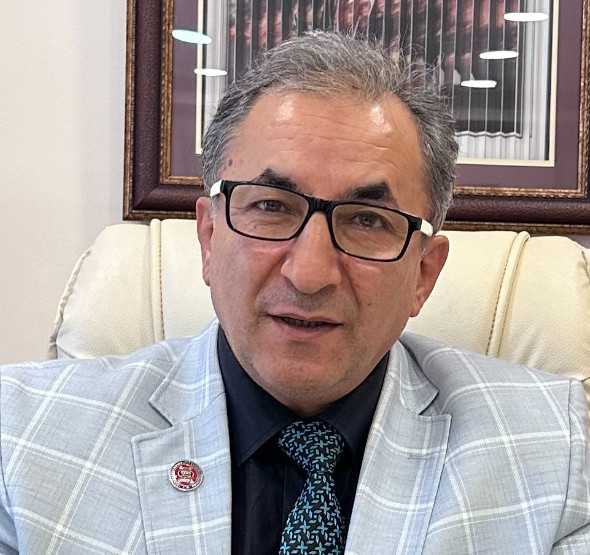Recently, especially through social media, racism and xenophobia have been on the rise, and their expected and targeted impact is becoming evident. The intended effect is not just to instill a sense of hatred among Turks towards Arabs, but more importantly, it aims to distance Arab tourism and capital investments from Türkiye.
Tourism is one of Türkiye's most significant sources of income and an essential export item. Türkiye's industry has gradually developed to become a significant export source, giving it a competitive advantage in industrial products and processed, high-quality agricultural products. Tourism, too, is a vital export item and has held strategic importance for Türkiye since the 1980s.
Bureaucratic obstacles to the development of this sector are being removed with this strategic approach, and investments are encouraged. The sector's development is also tied to a global competition for a share of the market. This competition can often be tough, and success is not solely based on countries marketing themselves effectively. Sabotage, forest fires, counter-propaganda, and even terrorist operations can play a part in this competitive arena.
Let's be clear, for years, in Türkiye, terrorist organizations such as the PKK and later, ISIS, carried out terrorist attacks not just to convey their ideological message but also as agents of this cutthroat competition. Every terrorist attack carried out in the heart of Istanbul propagated the image that Türkiye was an unsafe country, thereby undermining the image of Türkiye that the Ministry of Tourism was trying to establish. The tourism sector responded rapidly to these terrorist attacks, but the perception of insecurity created by the attacks took a toll on tourism. Those orchestrating these terrorist acts were either trying to redirect tourism to another destination or, without any such redirection intent, were merely attempting to harm the Turkish economy. In any case, hostility toward Türkiye was being exhibited.
Thanks to the significant successes achieved in the fight against terrorism in recent years, Türkiye has made substantial progress towards becoming a safe and peaceful country. Consequently, tourism has seen significant growth, and amid the current economic challenges, everyone acknowledges the vital role of tourism revenues as one of the most trusted sources of income. When he took over the helm of the economy, Finance Minister Mehmet Şimşek emphasized the need for further development in tourism.
However, those who were unable to hinder tourism through terrorism have now found another path by stoking xenophobia. Particularly, racist rhetoric, actions, and social media posts targeting Arabs do not remain confined within the country's borders; thanks to today's technological capabilities, they instantly reverberate in the Arab world. As rumors spread about an anti-Arab sentiment in Türkiye, an increasing number of reservation cancellations started to be felt this summer.
The cancellations do not pertain only to tourist travels; many capital investments have also shifted course due to the rampant racists in Türkiye. Those within the sector are increasingly witnessing this phenomenon. Even those not directly involved in the sector have paid a substantial price this summer, with the economic cost of these racist statements and actions amounting to at least 5 billion dollars.
Now, tell me, what sets apart these racist rhetoric and actions that have cost Türkiye 5 billion dollars in just a few months from the intentions and purposes behind PKK or ISIS terrorist attacks?
It is a well-known fact that Arab tourists spend at least ten times as much as a Russian or European tourist. Moreover, Arab tourists do not come for a brief period; they buy property, make investments, establish businesses, thus providing a unique source of continuous income for Türkiye. Such tourists are the apple of every country's eye, and everyone strives to attract them while attempting, if necessary, to dissuade them from going elsewhere, especially to their competitors.
Zahide Tuba Kor, based on a series of interviews with Syrian businessmen in her Foreign Policy and Middle East Daily blog, underscores the severity of the situation regarding xenophobia, especially anti-Arab rhetoric:
"The crimes committed against Syrians, when exaggerated and broadcasted in the Arab media, have led to Türkiye being gradually perceived as a racist state in Arab countries recently. This is a very dangerous situation. Anti-racism is developing in response to the growing racism in Türkiye. Due to the venom of racism spread by Ümit Özdağ and his ilk, you are unaware of how much your country has suffered."
"Foreigners are terminating their investments in Türkiye due to racism. Most of the Syrian merchants who had established companies in Türkiye stopped coming this summer, saying, 'Close the company and accounts. We do not want to come to Türkiye again or do business here.' They were spending at least 10,000 dollars a month every time they came to Türkiye, leaving money in this country."
To understand who those irresponsibly fanning the flames of xenophobia and anti-Arab sentiment are serving, one need only look at this picture. Those who wear the Turkish guise do not become traitors. Shouting about Turkishness and promoting hatred towards foreigners or making foreigners hostile to Türkiye does not benefit Turkishness in any way; it only causes harm.
Isn't it time to make those responsible for this harm pay the price through legal means? Shouldn't prosecutors take action on their own initiative in this regard? These statements directly threaten Türkiye's internal peace and security and thus necessitate action, with the Ministry of Culture and Tourism being directly involved and the Ministry of Interior intervening due to the disturbance of public peace and security.




